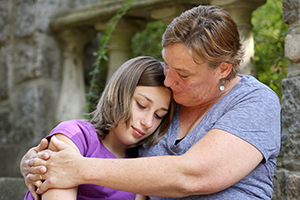Talking to Children About COVID-19
The uncertainty surrounding Coronavirus (COVID-19) in our community has us all pondering how our lives will be disrupted and when things can return to "normal."
Honestly, it can be an anxious time for adults. And it can be especially troubling to children, who may have a limited understanding of the world, the disease and may feel as if they have little control over their situation.
Earlier this week, the Centers of Disease Control and Prevention updated their recommendations for Talking with Children About Coronavirus Disease. The goal of this document to help children make sense of the current situation that is honest and minimizes fear. Feel free to review the full document for guidance on how to approach your child.
Remember, depending on each child — you as an adult have to determine what information is age-appropriate and address what aspects of the current situation are causing them the most concern.
Among the CDC’s recommendations include:
- Remain calm and reassuring. Children pick up how you talk with them and others about the situation.
- Remind them that viruses can make anybody sick. Avoid making assumptions about who might have COVID-19.
- Pay attention to what children see or hear on television or online. Too much exposure on the topic can cause anxiety. Furthermore, some stories may be based on rumors or inaccurate information.
- Teach children how to help reduce the spread of germs:
- Reinforce the importance of washing your hands with soap and water for at least 20 seconds. This should be done after blowing their nose, coughing or sneezing, using the bathroom and before or after eating. Download a guide to help children remember all the steps in proper handwashing.
- In addition, remind children to cough or sneeze into their elbow or a tissue. Throw the tissue away in the trash afterward.
- Remind children to stay away from people who are sick.
- Give honest information about COVID-19 according to the child’s development. Among some facts you can share include:
- Coronavirus (COVID-19) has caused deaths and made a lot of people sick. It can look different in different people. Health and school officials are working hard to keep everyone safe and healthy.
- Scientists think that most people will be OK and get better, but some people might get very sick. From what doctors have seen so far, most children don’t seem to get very sick.
- Practicing healthy habits can help prevent the spread of COVID-19. Handwashing and cleaning the things we touch the most — i.e., doorknobs, light switches, remote controls, electronics — can help.
- If you feel sick, stay home. At times like now, it’s important not to share germs with others.
The National Association of School Psychologists has also recently developed a guide for Talking to Children about COVID-19. This guide also is available in Spanish.
